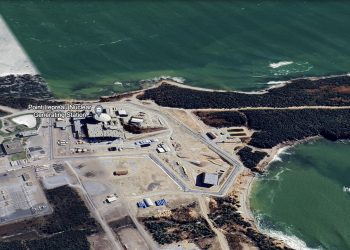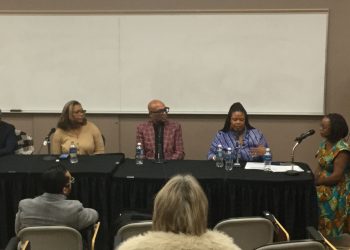A recent CBC news article noted that there has been a rise in “alt-right” activity in New Brunswick in recent years. While the surge in groups identifying as alt-right is concerning, their presence is not indicative of anything new. It is representative of something deeply engrained and consistently ignored in New Brunswick’s history.
New Brunswick has a long and sustained history of white supremacy. It’s the basis of the settler colonial state. The existence and dominance of the settler colonial state is the manifestation of white nationalism.
New Brunswick, and the Canadian state more broadly, relies upon the genocide of Indigenous peoples. The Canadian state has not only subjugated, eradicated, and dispossessed Indigenous peoples, it has also established a system by which Indigenous peoples must accept settler colonial ways of being in order to achieve legitimacy in the eyes of the state. This is engrained in both the Canadian Charter of Rights and Freedoms and the Canadian Human Rights Act.
Alt-right is a term referring to various white supremacist belief sets. Alt-right groups will continue to emerge because they are rooted in the same fundamental principles and frameworks as the Canadian system. While New Brunswickers like to champion the province’s role in the underground railroad, they refuse to acknowledge its long and brutal history of slavery. This history exists in memory, in newspaper ads for runaways, and in the shackles that hung in attics across the province. It exists in the prison and incarceration system. Unfortunately, it does not exist in the mind of most New Brunswickers.
What distinguishes alt-right groups from dominant socio-political structures is that alt-right groups believe that the status-quo is drifting. They believe that mainstream society has become less supportive of certain principles, behaviors, and practices historically engrained in society. Alt-right groups believe that these systems should be unashamedly championed. For the most part, they exist outside of the state and attempt to encourage the overt embrasure of white supremacist, anti-Semitic, and patriarchal structures by the state.
A historic example which sheds light on the current situation, and reveals its absence of novelty, is the fact that New Brunswick once had a large Ku Klux Klan presence. This is vaguely referred to in the article mentioned above. However, this presence was not insignificant and is worthy of more sustained attention. In fact, James Lord, Charlotte County MLA from 1925-30, was vice president of the Ku Klux Klan of Kanada. Richard Hanson, Mayor of Fredericton, MP, and federal Leader of the Opposition, also maintained KKK ties. While helping them secure copyright in NB, he referred to the KKK as “a highly important order” and said “I want to do whatever I can for them.” In total, seventeen chapters spread across New Brunswick in the 20s and 30s.
Like alt-right groups today, the Klan emerged because it provided an organization that manifested what many people already believed. The Klan drew on ideas engrained in Canadian society and embraced them unashamedly. Lord and Hanson were not alone – many politicians across the country were Klan members. Others relished Klan support.
The Klan of the 20s has more in common with present movements than people likely realize. In Canada, the KKK was concerned that Anglo heritage was under attack. Like alt-right groups, the Klan particularly concerned itself with targeting immigration, racialized people, and the ever-growing specter of communism. One motto of the Klan was “White, Gentile, Protestant civilization.” Gentile, in this case, meaning non-Jewish.
Klansmen identified strongly with British Protestantism. As French people and Catholics make up a large portion of New Brunswick’s population, much of the Klan’s activity was focused upon anti-French and anti-Catholic activity. The KKK considered maintaining the dominance and hegemony of Anglo settlers to be a patriotic duty. As all settler populations relied upon the domination and displacement of Indigenous peoples, the Klan was more concerned with struggling against other settler groups than with Indigenous peoples directly.
Like alt-right groups today, Klan members were caught in webs of conspiracies and believed that secret elements were working against them. Like alt-right groups today, they embraced nationalistic symbols and the Canadian flag. Like alt-right groups today, they called themselves patriots and claimed to protect the traditional family structure. Like alt-right groups today, they saw themselves as moral crusaders defending white civilization against decay.
There are, of course, a number of differences between the socio-political concerns of Anglo Protestants in the 1920s and white nationalists today. For one thing, white nationalism has no shortage of support among the descendants of French and Irish settlers. The similarities are still telling.
White supremacy and the alt-right cannot be treated as a fringe movement or a new emergence. Its roots are well established and widely cast. It stems from the same foundation as New Brunswick and Canada. Until this is reckoned with, it will persist indefinitely.
Luke Beirne is a freelance writer who lives in Saint John, NB.




![No timeline yet on pay equity bill promised during election campaign [video]](https://nbmediacoop.org/wp-content/uploads/2025/03/IWDMar82025-23-350x250.jpg)





